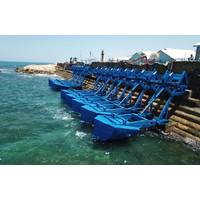Golar Bullish on LNG Market
Through the provision of cheaper and cleaner energy the liquefied natural gas (LNG) market will likely take market share from coal and oil and sustain industry growth levels of around 10% for the foreseeable future, said Golar LNG.
The shipping company registered in Bermuda said that key markets continue to import record levels of LNG as they distance themselves from coal and nuclear, with Chinese and Korean 2018 demand up 41% and 18%, respectively.
Lessons learned from gas shortages and last minute buying at the end of 2017 meant that China entered the winter buying market earlier in 2018. Milder than expected temperatures subsequently resulted in a slower than anticipated inventory drawdown with high or full North Eastern terminals delaying a number of vessel discharges and requiring that others slow steam.
The resultant increase in congestion together with a steady stream of new cargoes quickly absorbed all available ships, driving LNG carrier rates to all-time high levels in November.
Effective spot rates for trifuel diesel electric propulsion (TFDE) vessels, including positioning and ballast fees briefly exceeded $200,000 per day, with a minimal discount to gas injection vessel rates being noted. Rates for steam (ST) vessels also reached their highest level in five years.
Drawdown of LNG as a result of cooling December temperatures then allowed vessels to discharge and speed up, adding some slack to the tight shipping availability.
Despite record December LNG imports into Northeast Asia, falling Brent prices, strong European gas prices and milder weather prevented the arbitrage window from opening.
The shipping balance lengthened to the extent that multiple vessels became available for spot fixtures with resulting TFDE and ST spot rates falling to $100,000 and $85,000 per day, respectively, by the end of December.
Rates have continued to soften into 1Q 2019 when around half of the 2019 newbuild vessels are scheduled to deliver. JKM LNG prices have traded down to 9-10% of Brent. This has significantly capped the global LNG arbitrage and placed further pressure on shipping rates. These same low prices do however strengthen the long-term fundamental growth prospects of LNG as a cheap clean fuel.
Comprised of a TCE1 of $97,300 for spot TFDE vessels, $91,700 in respect of its total TFDE fleet, and $13,700 for its two steam vessels, Golar recorded a 4Q TCE1 of $77,600 per day, up 151% on the $30,900 per day achieved in 4Q 2017 and 88% on the $41,200 achieved in 3Q.
Golar LNG's forward view of the market remains bullish despite current volatility. Vessel deliveries are expected to slow by approximately 20% from record levels of around 49 in 2018 to around 39 in 2019. Of the 2019 deliveries, only 5 are uncontracted.
At the same time, new liquefaction capacity ramps up at close to its fastest pace in history with approximately 35mtpa of new LNG scheduled to come on line in 2019 versus 30mtpa in 2018. Most of this new liquefaction will originate from the US, close to doubling their current nameplate export capacity and further increasing ton-miles.
Around 35 vessels and a further 20mtpa of new, predominantly US-source, LNG is scheduled to deliver in 2020. Leading brokers are forecasting a 10+ vessel shortfall at the end of 2019, increasing to more than 20 at the end of 2020.
Significant progress has been made establishing a joint structure with other ship owners that allows LNG shipping investors more direct exposure to the LNG shipping market. Golar plans to contribute its TFDE vessels, the technical management of which will remain with Golar Management Oslo, into a new company.
Agreements with banks and lessors have also been reached securing approximately $1.1 billion in financing for the 9 vessels Golar is considering contributing to this new company, it said.


